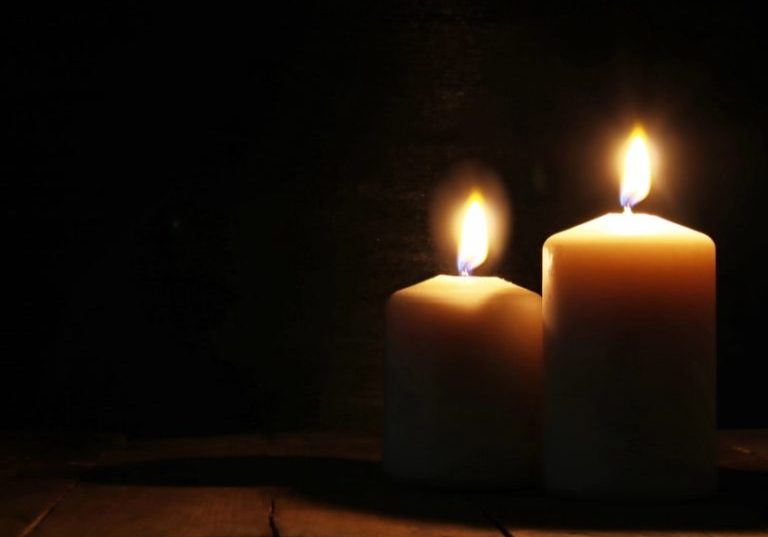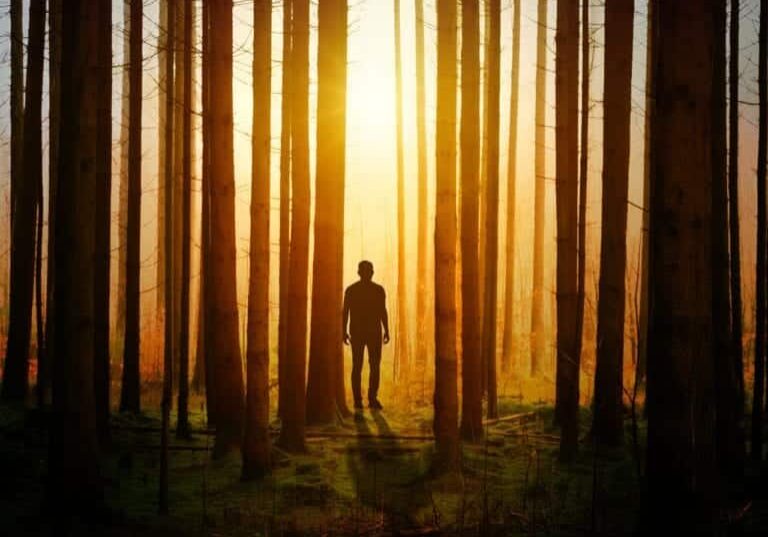Earlier this week, my wife showed me three photos of young children, two girls and a little boy each maybe 3 or 4 years old, that she’d made using an app that combined her image with mine.
This is what our children might have looked like, children we learned not long ago we are biologically unable to create, and so will never meet … or ever get to love.
I wasn’t prepared for what those images would do to me.
Ambiguous grief describes a grief that resists closure, for whatever the loss it’s difficult to understand or even really name, like a soldier missing in action who may yet be dead or alive, or losing a parent to dementia as they still live, or some distant war or natural disaster that doesn’t directly affect you … and yet it does affect you, painfully so.
Last year my wife and I learned by a phone call one ordinary evening that we couldn’t have a child together.
It was as if the Universe in that moment split in two. We were in the midst of an arduous fertility journey, and we were hopeful. Instead of a joyous celebration of new life arriving, the beginning of our family, we were instead thrust onto a path of grieving, of trying to understand the loss of a child we’d never had, with no body to mourn and no gravesite to visit.
Despite my common man-resistance to tears, I cried for 3 days following that news.
When my wife showed me these new pictures she’d made few days ago, a new layer of grief began to well up inside me. What had been ambiguous before somehow now felt more real.
I know these are AI-generated images of kids who don’t exist and never have, but it’s freaky how realistic AI does people now.
As I sit here writing this, I find myself taking short breaks to allow fresh tears to flow from my face as this sadness I thought I’d mostly moved through is once again simply having its way with me. Perhaps these images are helping me touch deeper layers of grief I wouldn’t otherwise be able to find inside me.
In my most recent “Men, This Way” podcast episode with Dr. Brooke Weinstein, we dive into the emotional struggles of men and fathers. Dr. Brooke reminds us how critical it is for men to learn how to feel what we actually feel, and just how difficult that can be for many of us.
I know these tears, this sadness, this grief, though awful and heart-wrenching, is essential for my well-being and vitality.
I’ve been feeling emotionally shut down the last few weeks. I’m in the midst of a difficult season of life, from losing the dream of child, to losing my father who’s still alive, and throw in an abiding sense of being unrooted and disconnected from place and community as my wife and I continue our years-long search for Home. Yet I still have a business to run, clients to serve, expenses to meet, a house to manage, and a marriage to tend.
The wise action at this challenging time is not to shut down or withdraw from life. It isn’t to distract myself with excessive video gaming, or porn, or TV, or doubling down on busy work.
No. The wise action is to allow myself to feel what I feel – to allow, as Rumi says in his poem, “The Guest House,” this emotional crowd of sorrows to violently sweep my house and empty it of its furniture, for it may be clearing me out for some new delight.
I must also confess these emotions to my wife.
Like many men, my first instinct – or perhaps my programming – is to hide difficult feelings from her, to not let her know those child pictures affected me so, to not reveal to her my tears. After all, I don’t want her to feel bad for showing me. I’ve also been taught it’s weak for a man to show emotions.
But that old story doesn’t serve me, or my wife, or anyone. Hiding my emotions, whether from my wife or from the world, only exiles vitality from my body.
I’ve walked that path – the path of ambiguous grief denied – countless times in the past. It’s misery. It’s isolation. It’s the pitiable existence of a hungry ghost, condemned to forever walk the earth, always eating, never feeling full.
Thank you for bearing witness to my grief.
♦◊♦
p.s. On my YouTube channel over the next few months I’m making videos of me reading every chapter of Choose Her Every Day (Or Leave Her). (I’m up to Chapter 3). I’ll take you deeper into these teaching stories, the relational tools and practices, and my thoughts as I go, so if you’d like to follow along, subscribe to the channel 🙂
**The Guest House, by Rumi
This being human is a guest house.
Every morning a new arrival. A joy, a depression, a meanness,
some momentary awareness comes
As an unexpected visitor. Welcome and entertain them all!Even if they’re a crowd of sorrows,
who violently sweep your house
empty of its furniture,
still treat each guest honorably.
He may be clearing you out
for some new delight.The dark thought, the shame, the malice,
meet them at the door laughing,
and invite them in. Be grateful for whoever comes,
because each has been sent
as a guide from beyond.
- 0shares
- 0Facebook
- 0Twitter
- 0Pinterest
- 0Email





Leave a Comment